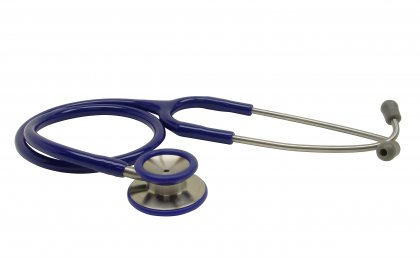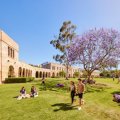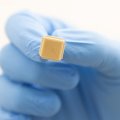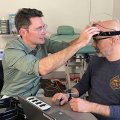
The University of Queensland has been awarded more than $26 million for health and medical research, to investigate cancer treatments, pain relief, dengue fever vaccinations and more.
Today’s National Health and Medical Research Council (NHMRC) grants are in addition to $50 million in NHMRC for 85 UQ research projects announced in October.
UQ was awarded 18 grants and took pride of place in the grants round, receiving more funding than any other Australian research institution.
The 18 grants were awarded across three NHMRC schemes — Development Grants, Partnership Projects for Better Health, and Program Grants — with UQ receiving the largest number of grants in each scheme.
UQ Deputy Vice-Chancellor (Research) Professor Max Lu congratulated the researchers who secured strong success rates for UQ applications – as high as 100 per cent in two of the three NHMRC grants schemes announced today.
“These grants are smart investments in the health of Australians and of our global neighbours,” Professor Lu said.
“While the health outcomes matter most, the funding will also encourage employment, exports and productivity; bring Australia new investments from global sectors including big pharma; lift international regard for Australian researchers; and help attract more top-shelf researchers and students to Australia.
Both of the University’s 2015 NHRMC Program Grant proposals were among the 11 selected nationally, securing more than $21 million:
- An $11.8 million research program spearheaded by Professor Ranjeny Thomas from the UQ Diamantina Institute will investigate immunological therapies for cancer, chronic infection and autoimmunity. The program includes researchers from the University of Western Australia and the Queensland Institute for Medical Research.
- A $9.2 million research initiative led by Professor Richard Lewis from UQ’s Institute for Molecular Bioscience into chronic pain relief using new peptides from cone snails and spiders. UQ will partner with colleagues from RMIT and The University of Sydney.
“The Program Grants, in particular, invest in UQ biomedical researchers who have proven they can deliver positive outcomes – for example the cervical cancer vaccine that has potential to save more than 250,000 lives each year,” Professor Lu said.
“Many of the projects that the grants support will see UQ researchers working with partners around the globe to accelerate taking new vaccines and drugs from the lab to the market to treat patients and provide better healthcare.”
UQ’s two applications under the 2014 NHMRC Partnerships for Better Health – Partnership Projects (Partnership Projects) scheme were successful.
Only seven grants were awarded nationally under this scheme, which aims to create partnerships among decision makers, policy makers, managers, clinicians and researchers to create new opportunities to undertake joint research and also to interpret and implement the findings.
The two UQ-led projects secured about $1.5 million:
- $1.267 million for a Partnership Project between the UQ Cancer Prevention Research Centre (CPRC) and the Cancer Councils of New South Wales, Victoria, South Australia and Western Australia, which aims to improve quality of life and longevity of cancer survivors, via the Cancer Council Helpline. The project will be led by CPRC Director Professor Elizabeth Eakin.
- $293,500 for a Partnership Project led by UQ Centre for National Research on Disability and Rehabilitation Medicine (CONROD) Associate Director Professor Michele Sterling, which aims to improve recovery and health following whiplash. The project partners are the Motor Accident Insurance Commission of Queensland (MAIC) and Motor Accidents Authority of NSW (MAA)
UQ researchers received five of the 24 Development Grants awarded nationally, securing more than $3 million to undertake cutting-edge research at the early proof-of-principle or pre-seed stage:
- Professor Ben Hankamer for research into dengue virus vaccine production ($591,894)
- Professor Mark Walker for testing group A streptococcal vaccines on non-human primates ($752,779)
- Professor Mark Kendall to investigate applying micropatches to the skin in order to diagnose diseases ($796,599)
- Associate Professor Mark Smythe for development of treatments for allergic asthma and related disorders ($328,781)
- Professor David Craik for the development of peptide-based pain therapeutics ($574,503).
Media: UQ Communications, 3365 1120, communications@uq.edu.au.
.jpg)









